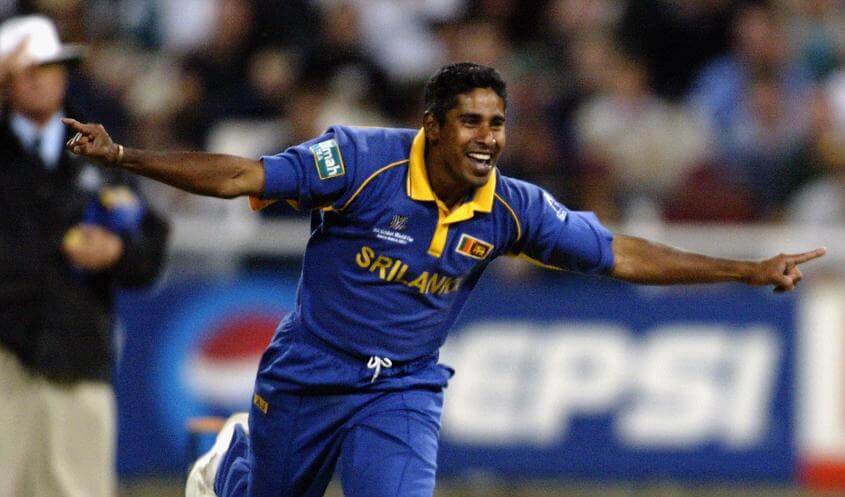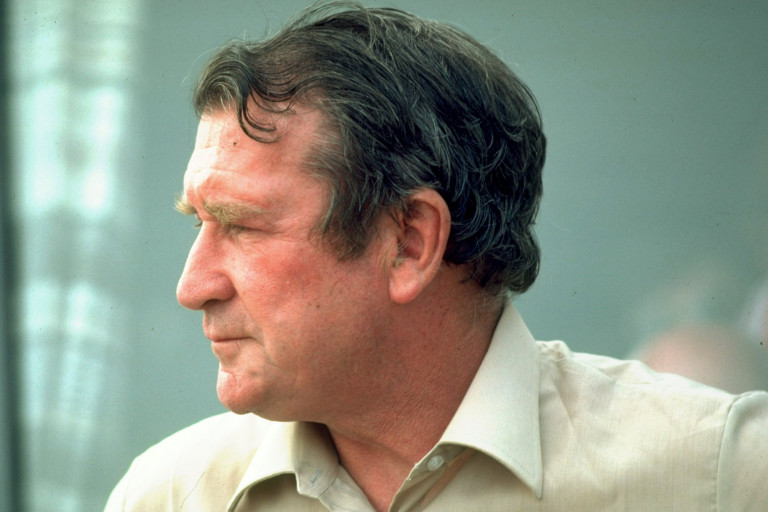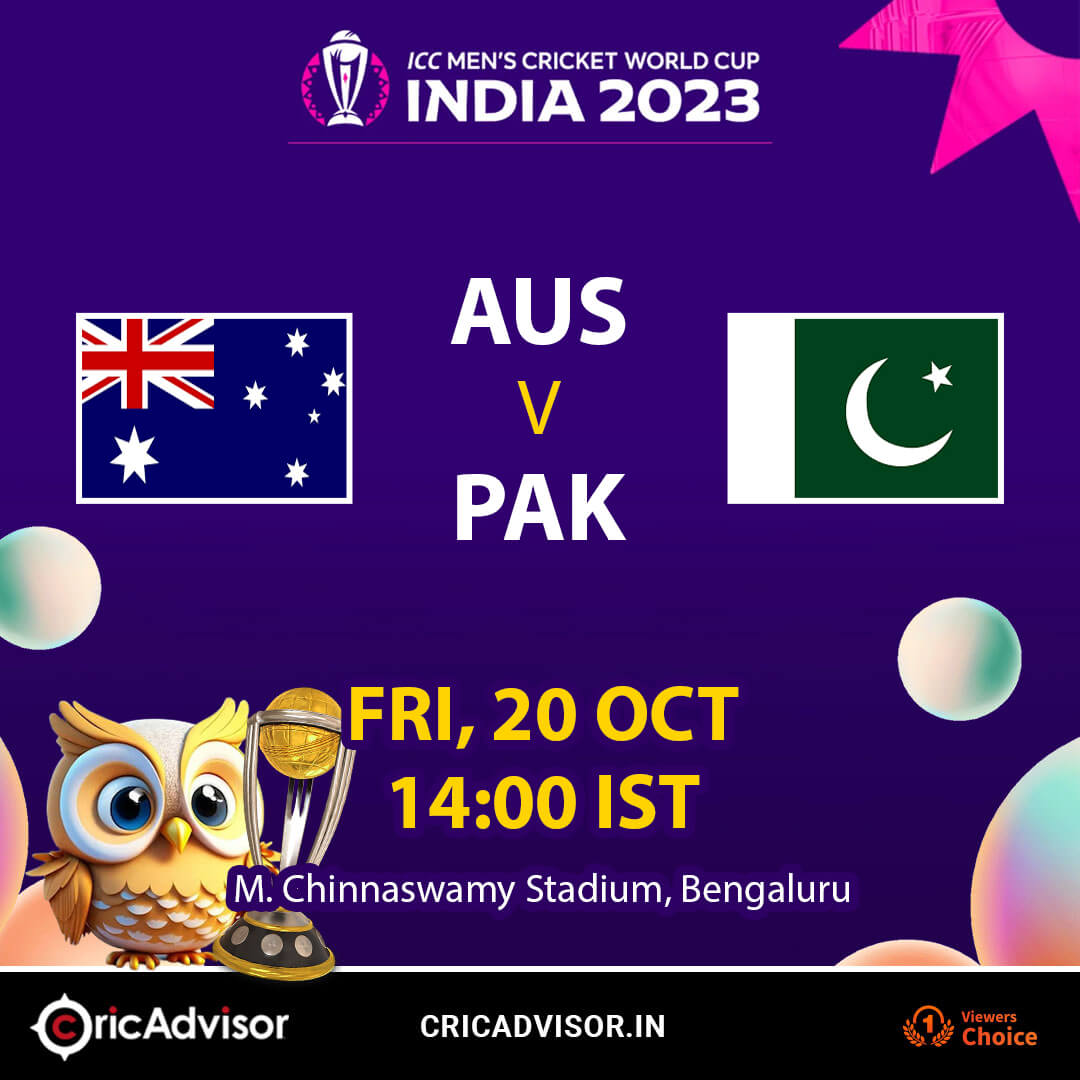
10. Best 1-Day International Bowling Figures
Chaminda Vaas’ return against Zimbabwe in 2001 will take some beating, given that modern ODIs are limited to 60 deliveries.
The skilled left-armer claimed eight wickets for 19 runs.
To put it another way, the African squad lost 80 percent of their wickets as they were reduced to 38 all out in 15.4 overs.
Despite the fact that the opposition was a supposedly lesser team, Vaas’ ODI record stats are unlikely to be broken anytime soon.

9. Highest Score by nightwatchman
Professional cricketers spend a large portion of their days bored out of their minds, standing on fields watching the opposition bat.
So it would be interesting to know what was going through the heads of the Bangladesh fielders as Australia’s nightwatchman Jason Gillespie tallied up an amazing unbeaten 201 in their 2006 Test match.
“Dizzy” concluded his career with a good tail-enders average of 19.59, but this absolutely miraculous innings in Chittagong will be difficult to surpass.
Especially when a nightwatchman’s principal role is to occupy the crease for a few overs at the end of the day.
8. Shortest ever Test Match
If you had tickets to the fifth day of the 1932 Test match between Australia and South Africa in Melbourne, you would have been disappointed.
And the fourth, third, and even second day, because the action was completed in five hours and 53 minutes on a hazardous pitch.
South Africa was dismissed for 36 and 45, and lost an innings defeat to Australia’s massive score of 153, with Bert Ironmonger collecting 11 for 24. The match would almost certainly have been called off today.
7. Most balls delivered in a single inning
Sonny Ramadhin must have required an ice bath following his Herculean efforts against England at Edgbaston in 1957.
The spinner bowled 98 overs in the second innings, the most ever bowled in a single innings.
The closest anyone has come recently is Zimbabwe’s Ray Price, who bowled 79 overs in a Test match against South Africa in 2001.
6. Lowest ODI Economy Rate
Phil Simmons’ Test career did not do the gifted all-rounder justice, but his name will most certainly live on in the record books thanks to his remarkable return against Pakistan in 1992.
The Trinidadian got through his entire 10-over stint, which yielded four wickets but only allowed three runs.
In this T20-inspired age of ultra-aggressive hitting, Simmons’ freak economy rate of 0.30 will undoubtedly never be surpassed.

5. Most international wickets
Muttiah Muralitharan’s remarkable career aggregate of wickets seemed practically impossible given the average duration at the top for an international cricketer.
With 1,347 victims, 800 in Test matches and 547 in white-ball formats, the spinner terrorised batsmen for two decades.
Given that Murali’s closest contemporary Shane Warne is still 346 wickets behind the Sri Lankan, it will take a special career to even come close to this total.

4. Most Outstanding Match Bowling Statistics
Every few years, a bowler has a fluke match and goes through the opposition squad, taking every single wicket that falls in that inning.
It’s almost impossible to do it twice in the same game. But that’s virtually exactly what Jim Laker accomplished against Australia in 1956 at Old Trafford.
After taking nine wickets for 37 runs in the first innings, the off-spinner improved by getting ten for 53 in the second.
Despite missing out on a perfect return, Laker’s massive match stats of 19 for 90 are unbeatable.
3. Oldest cricketer
Wilfred Rhodes, a renowned English all-rounder, might have three unbreakable records.
However, given that players no longer play nearly as much first-class cricket as they once did, only one record will serve in order to add some variety to this list.
At the ripe old age of 52 years and 165 days, the Yorkshireman, who famously began at the bottom of England’s batting order and concluded as opener, is the oldest man to ever play Test cricket.
This record won’t be surpassed in the modern day because players are frequently done competing by their mid-thirties.
Rhodes also holds the records for the most first-class games played (1,110) and first-class wickets taken (nearly 4,000), both of which are highly unlikely to be surpassed.
2. Most career runs
One of England’s all-time greatest batsmen and the sport’s leading run-scorer is the renowned Sir Jack Hobbs.
“The Master” scored nearly 60,000 runs throughout his illustrious career, which lasted from 1905 to 1934, including 199 centuries (another record).
These records will stand the test of time since there are simply not enough games available now to reach those levels.
1.Highest batting average
The tale of Sir Don Bradman’s final inning in cricket is legendary. The Australian icon finished with a spectacular Test average of over 100 runs, needing just four runs to do so after a fruitful career.
He was bowled for a duck and scored 99.94, which is by far the best score ever made, albeit being a small numerical letdown.
Graeme Pollock holds the second-best career Test average with a 60.97, but Cheteshwar Pujara is now off to the best start of his career, scoring an average of 66.25 runs per innings.
Bradman, though, will never be surpassed statistically by anyone who participates in a sizable number of games due to his talent.










